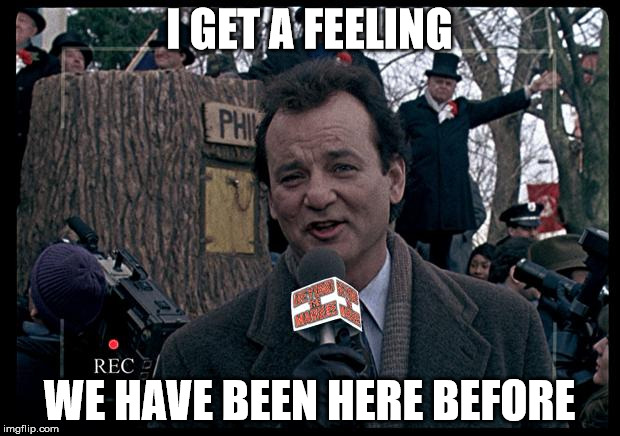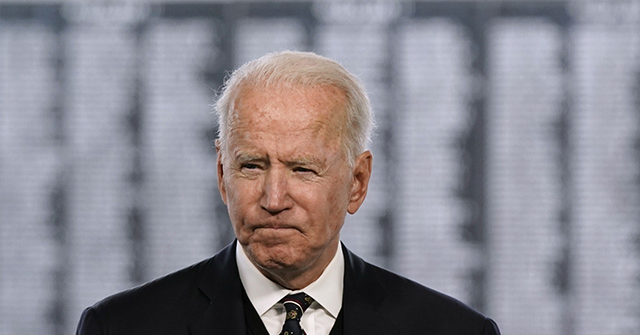Pellinore
Platinum Member
- May 30, 2018
- 2,073
- 1,188
- 940
Okay, here's how it went down.
Remember all the talk about burn pits? Soldiers suffering and dying and unable to get the VA help they needed? Surely you do. That was one of the reasons that Congress passed the PACT Act (technically the Sergeant First Class Heath Robinson Honoring our Promise to Address Comprehensive Toxics Act) in August of 2022. It passed the House 256-174, including Yea votes from 34 Republicans, and then (after an initial cloture vote) flew through the Senate 84-14, including Yeas from another 34 Republicans out of only 50 in the Senate at that time (two others abstained). The President signed the PACT Act on August 10, at which point it became law.
So this was not "Biden's bill." This was demanded by public outcry, and Congress eventually passed it. The PACT Act, now law, says that Congress is to give the VA extra money for the fiscal year 2024, which Congress should be working on now to take effect on October 1 of this year. The two halves of Congress are supposed to work out a federal budget by April 15 every year (but they almost never make it on time). Before they can make the new budget, though, they have to work out the debt ceiling.
The debt ceiling goes back to a law made in 1917 to allow us to borrow enough to stay in World War I; it is essentially our national credit limit, and Congress has to vote to increase it every time we hit that limit. Naturally, we hit it almost every year, usually pretty early. It should be mentioned that raising the debt limit isn't there to allow us to buy more stuff this year, it's there to make it possible for us to pay for the charges we already made to the national "credit card" last year. Because of that, it's almost a formality that sails through every year, because defaulting on the national debts would be, to say the least, economically catastrophic.
This year, for whatever reason, the R-led House decided to refuse to increase the debt limit as it has year after year. Instead, it just passed the "Limit, Save, Grow Act of 2023" refusing the authorize payment for last year's debts until laws and so on passed for this year's budget are repealed. One of those laws is the PACT Act, which isn't anyone's proposal for anything any more, as it was passed through both chambers of Congress and signed into law last August. That means that yes, the GOP bill rescinding that would be cutting back a pile of money that our suffering soldiers desperately need, because it would be undoing a law already in place.
Regardless of what each person thinks of that morally, I have to question it strategically, because this bill doesn't have a snowball's chance in the Senate. That means that all it seems to ensure is that the opponents of every one of those House Republicans that signed it gets a pile of free election-year ammunition. Speaking of which, here are the 23 House Republicans that voted to grant the PACT Act, and now voted to take it back away, in case, y'know, any of the you are in their districts and want to think hard about their anti-soldier flip-flop, say, next November.
Jack Bergman (MI-1), Stephanie Bice (OK-5), Gus Bilirakis (FL-12), Mike Carey (OH-15), Ben Cline (VA-6), Warren Davidson (OH-8), Scott DesJarlais (TN-4), Brian Fitzpatrick (PA-1), Andrew Garbarino (NY-2), Richard Hudson (NC-9), Bill Johnson (OH-6), David Joyce (OH-14), John Joyce (PA-13), Nancy Mace (SC-1), Nicole Malliotakis (NY-11), Thomas Massie (KY-4), Brian Mast (FL-21), Lisa McClain (MI-9), Gregory Murphy (NC-3), Jay Obernolte (CA-23), Bill Posey (FL-8), Christopher Smith (NJ-4), and David Valadao (CA-22).
If any of you are lucky enough to speak with one of these in person, make sure you ask them if they were just pretending to support the troops then, or if they are just turning on them now. That'd be a good thing to know.
Remember all the talk about burn pits? Soldiers suffering and dying and unable to get the VA help they needed? Surely you do. That was one of the reasons that Congress passed the PACT Act (technically the Sergeant First Class Heath Robinson Honoring our Promise to Address Comprehensive Toxics Act) in August of 2022. It passed the House 256-174, including Yea votes from 34 Republicans, and then (after an initial cloture vote) flew through the Senate 84-14, including Yeas from another 34 Republicans out of only 50 in the Senate at that time (two others abstained). The President signed the PACT Act on August 10, at which point it became law.
So this was not "Biden's bill." This was demanded by public outcry, and Congress eventually passed it. The PACT Act, now law, says that Congress is to give the VA extra money for the fiscal year 2024, which Congress should be working on now to take effect on October 1 of this year. The two halves of Congress are supposed to work out a federal budget by April 15 every year (but they almost never make it on time). Before they can make the new budget, though, they have to work out the debt ceiling.
The debt ceiling goes back to a law made in 1917 to allow us to borrow enough to stay in World War I; it is essentially our national credit limit, and Congress has to vote to increase it every time we hit that limit. Naturally, we hit it almost every year, usually pretty early. It should be mentioned that raising the debt limit isn't there to allow us to buy more stuff this year, it's there to make it possible for us to pay for the charges we already made to the national "credit card" last year. Because of that, it's almost a formality that sails through every year, because defaulting on the national debts would be, to say the least, economically catastrophic.
This year, for whatever reason, the R-led House decided to refuse to increase the debt limit as it has year after year. Instead, it just passed the "Limit, Save, Grow Act of 2023" refusing the authorize payment for last year's debts until laws and so on passed for this year's budget are repealed. One of those laws is the PACT Act, which isn't anyone's proposal for anything any more, as it was passed through both chambers of Congress and signed into law last August. That means that yes, the GOP bill rescinding that would be cutting back a pile of money that our suffering soldiers desperately need, because it would be undoing a law already in place.
Regardless of what each person thinks of that morally, I have to question it strategically, because this bill doesn't have a snowball's chance in the Senate. That means that all it seems to ensure is that the opponents of every one of those House Republicans that signed it gets a pile of free election-year ammunition. Speaking of which, here are the 23 House Republicans that voted to grant the PACT Act, and now voted to take it back away, in case, y'know, any of the you are in their districts and want to think hard about their anti-soldier flip-flop, say, next November.
Jack Bergman (MI-1), Stephanie Bice (OK-5), Gus Bilirakis (FL-12), Mike Carey (OH-15), Ben Cline (VA-6), Warren Davidson (OH-8), Scott DesJarlais (TN-4), Brian Fitzpatrick (PA-1), Andrew Garbarino (NY-2), Richard Hudson (NC-9), Bill Johnson (OH-6), David Joyce (OH-14), John Joyce (PA-13), Nancy Mace (SC-1), Nicole Malliotakis (NY-11), Thomas Massie (KY-4), Brian Mast (FL-21), Lisa McClain (MI-9), Gregory Murphy (NC-3), Jay Obernolte (CA-23), Bill Posey (FL-8), Christopher Smith (NJ-4), and David Valadao (CA-22).
If any of you are lucky enough to speak with one of these in person, make sure you ask them if they were just pretending to support the troops then, or if they are just turning on them now. That'd be a good thing to know.





